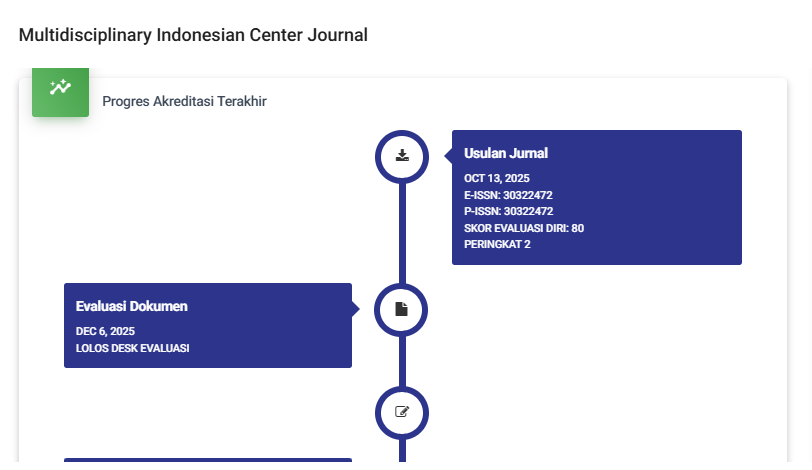ANALYSIS OF THE IMPLEMENTATION OF REHABILITATION FOR PERPETRATORS OF SEXUAL VIOLENCE CRIMES
DOI:
https://doi.org/10.62567/micjo.v1i1.52Keywords:
kekerasan seksual, pelaku, rehabilitasiAbstract
Responding to the emergency of sexual violence in Indonesia which occurs from year to year, the Government of the Republic of Indonesia in 2022 passed Law Number 12 of 2022 concerning Criminal Acts of Sexual Violence. This law complements a series of regulations that already regulate crimes of sexual violence. The specialty of this law is that it provides more comprehensive regulation of sexual violence crimes, which are currently increasingly diverse. One of the interesting things regulated in the law is related to rehabilitation efforts for perpetrators of criminal acts of sexual violence. This article will discuss rehabilitation efforts for perpetrators of sexual violence which aim to recover perpetrators from their deviant acts, namely sexual violence. This research uses normative research methods with a conceptual approach and a statutory approach. The results of this research indicate that providing rehabilitation measures according to the Criminal Code is a type of action that can be imposed simultaneously with criminal sanctions or separately by referring to the judge's considerations. Meanwhile, the provision and mechanism of rehabilitation measures for perpetrators of sexual violence as regulated in Law Number 12 of 2022 concerning the Crime of Sexual Violence still requires further regulations issued by the Ministry of Social Affairs and the Ministry of Health to be implemented optimally
Downloads
References
Capera, B. (2021). Keadilan Restoratif Sebagai Paradigma Pemidanaan Di Indonesia. Jurnal Lex Renaissance, 6(2). https://doi.org/10.20885/jlr.vol6.iss2.art1
Fajar ND, M., & Achmad, Y. (2007). Dualisme Penelitian Hukum. In Yogyakarta. Pensil Komunika (Vol. 1).
Rivanie, S. S., Muchtar, S., Muin, A. M., Prasetya, A. M. D., & Rizky, A. (2022). Perkembangan Teori-teori Tujuan Pemidanaan. Halu Oleo Law Review, 6(2). https://doi.org/10.33561/holrev.v6i2.4
S., T., & Naibaho, N. (2020). PENJATUHAN KEBIRI KIMIA BAGI PELAKU KEJAHATAN SEKSUAL TERHADAP ANAK DALAM PERSPEKTIF FALSAFAH PEMIDANAAN. Jurnal Hukum & Pembangunan, 50(2). https://doi.org/10.21143/jhp.vol50.no2.2594
Saputra, E. P., Artadi, I., & Sanusi, S. (2022). Pemidanaan Double Track Sistem Terhadap Pelaku Tindak Pidana Korupsi. Hukum Responsif, 13(2). https://doi.org/10.33603/responsif.v13i2.7363
Ummah, K. K., Anggreiny, N., & Nasa, A. F. (2022). REFLEKSI HUKUMAN BAGI REMAJA PELAKU KEKERASAN SEKSUAL. Jurnal Psikologi, 15(1). https://doi.org/10.35760/psi.2022.v15i1.4244
Widiartana, G. (2017). PARADIGMA KEADILAN RESTORATIF DALAM PENANGGULANGAN KEJAHATAN DENGAN MENGGUNAKAN HUKUM PIDANA. Justitia et Pax, 33(1). https://doi.org/10.24002/jep.v33i1.1418
Downloads
Published
How to Cite
Issue
Section
License
Copyright (c) 2024 Itok Kurniawan

This work is licensed under a Creative Commons Attribution-ShareAlike 4.0 International License.



























